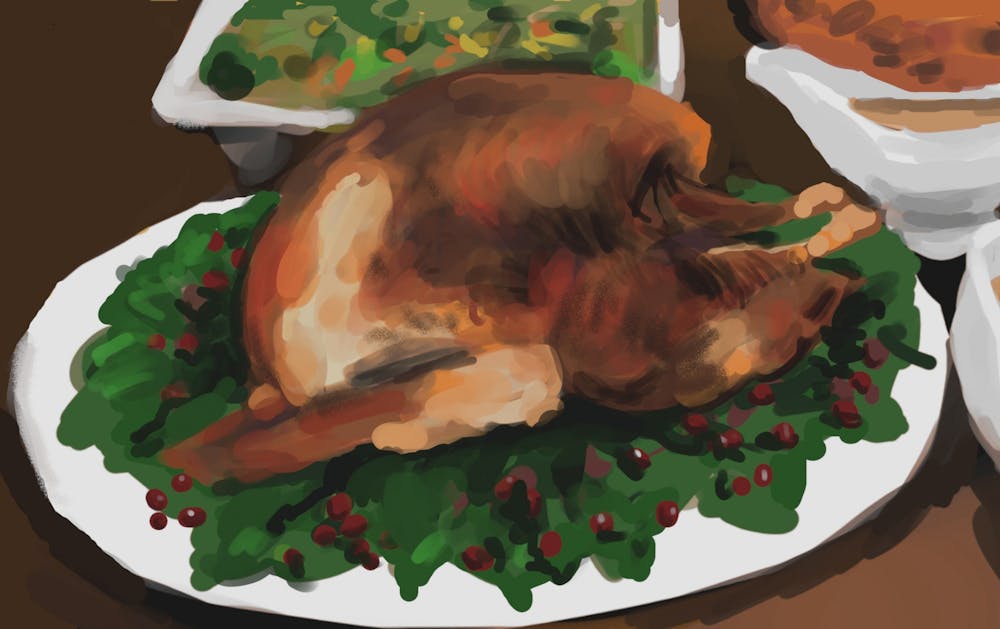Native American Heritage Day celebrates its 10th anniversary on Black Friday, a day synonymous with consumerism, capitalism and everything American.
The lack of importance placed on Native American Heritage Day and distance of Thanksgiving from its origins demonstrates a larger issue surrounding a lack of Native voice in schools across the country.
"By not understanding their history, a lot of Americans don’t understand some of the impressive contributions these tribes have made to America, for example, the Gila River community," said Donald Fixico, a Regents professor of history focusing on American Indian history.
Not understanding that Native Americans have a rich culture and sense of community directly affects their treatment in America today.
“There (are) 22 different tribes that have about 20% of the entirety of the land in Arizona," Fixico said. "So there is a lot of Native land in Arizona."
Currently, Native land is at risk in Arizona, from the threat of the border wall that could cut through Native land to the construction of highways that encroached on sacred land. It's important that, as residents of Arizona, ASU students are aware of Native struggles and barriers in the status quo.
It is especially important to consider these Native issues around Thanksgiving, a holiday that should, but no longer does, acknowledge Native American history in the U.S.
We have all learned about why we celebrate Thanksgiving — the pilgrims from Plymouth and Wampanoag Native Americans shared a harvest feast. While Thanksgiving is no longer tied to its history and is instead considered the beginning of the holiday season, it is important to understand and acknowledge the holiday's origins.
Students celebrate the day that Native Americans shared their gift of harvest with the settlers, but they are complacent in allowing history to be written by the victors and erasing the history of the victims.
“There’s really kind of a lack of understanding of American Indians and more specifically a lack of understanding of American Indian history. This has left them left out of the larger story of America,” Fixico said.
A study conducted by Gary Padgett with the University of South Florida that looked at American history textbooks in Florida claimed, “while there have been improvements in the portrayal of American Indians in textbooks, the policies of colonization and assimilation are still being employed.”
This should be especially important to ASU students because while 5.3% of Arizona’s population is Native American, only 1.29% of ASU’s population is Native. Despite the fact ASU does graduate many Native Americans, this number still indicates that students and the University need to actively work to understand and acknowledge Native American people and their history.
There is a large variety of resources that ASU provides for students to educate themselves. In fact, ASU is one of few schools in the country to actually have an American Indian studies major and graduate degree as well as a law degree with a focus in the area.
By learning about Native American history, ASU students will be able to advocate and educate to give Native American citizens their rightful place in history and the future.
The student's voice is an important one. America must consider its past and current treatment of Native Americans in the policy and education process. If it does not, the necessary changes in the way we treat Native Americans will not be possible.
While Thanksgiving is one of my favorite times of the year, it is unfair to suppress history and celebrate thankfulness and coming together on a day that symbolizes such suffering and injustice.
Reach the columnist at alshah2@asu.edu or follow @aasheeni on Twitter.
Editor’s note: The opinions presented in this column are the author’s and do not imply any endorsement from The State Press or its editors.
Want to join the conversation? Send an email to opiniondesk.statepress@gmail.com. Keep letters under 500 words and be sure to include your university affiliation. Anonymity will not be granted.
Like The State Press on Facebook and follow @statepress on Twitter.




